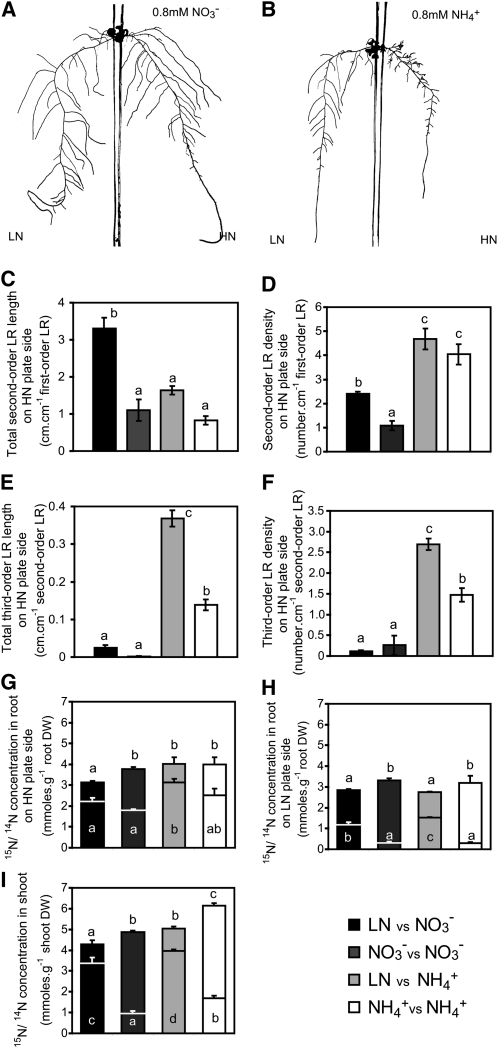Figure 3.
Local Ammonium Supply Induces Third-Order Lateral Root Branching.
(A) and (B) Typical root morphology of wild-type plants grown on vertically split agar plates with the first lateral root growing into an HN compartment with 0.8 mM KNO3 (A) or 0.8 mM NH4Cl (B) and the remainder of the roots growing in 5 μM KNO3 (LN).
(C) to (F) Quantitative assessment of root morphology (C), second-order lateral root (LR) length, second-order lateral root density (D), third-order lateral root length (E), and third-order lateral root density (F).
(G) to (I) 15N uptake from 15N-labeled nitrate or ammonium applied to the HN side and its distribution in plants. Concentrations of total nitrogen (14N+15N, outer bars) and 15N (inner bars) in roots grown on the HN side (G), or roots grown on the LN side (H), and (I) shoots are indicated. Plants were grown on vertically split agar plates for 15 d on either local nitrogen supply (5 μM NO3− on the LN side with 0.8 mM NO3− or NH4+ on HN side; LN versus NO3−LN versus NH4+) or homogenous nitrogen supply (0.8 mM NO3− or NH4+ on both sides; NO3− versus NO3−NH4+ versus NH4+). Bars represent mean values (±se) of 10 to 20 individual plants, and different letters for total nitrogen (14N+15N, outer bars) and 15N (inner bars) denote significant differences among means at P < 0.05 (Tukey’s test). DW, dry weight.

